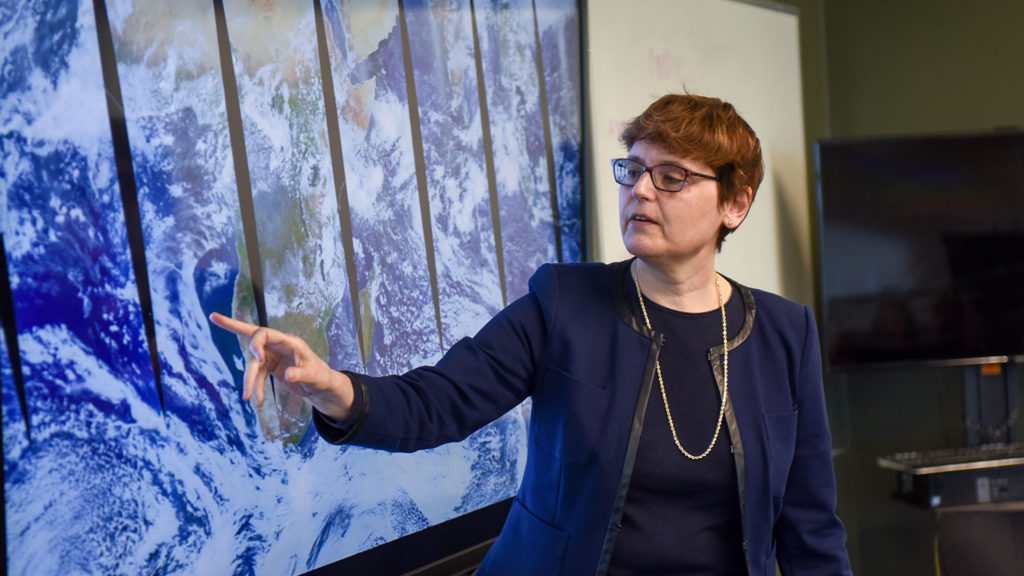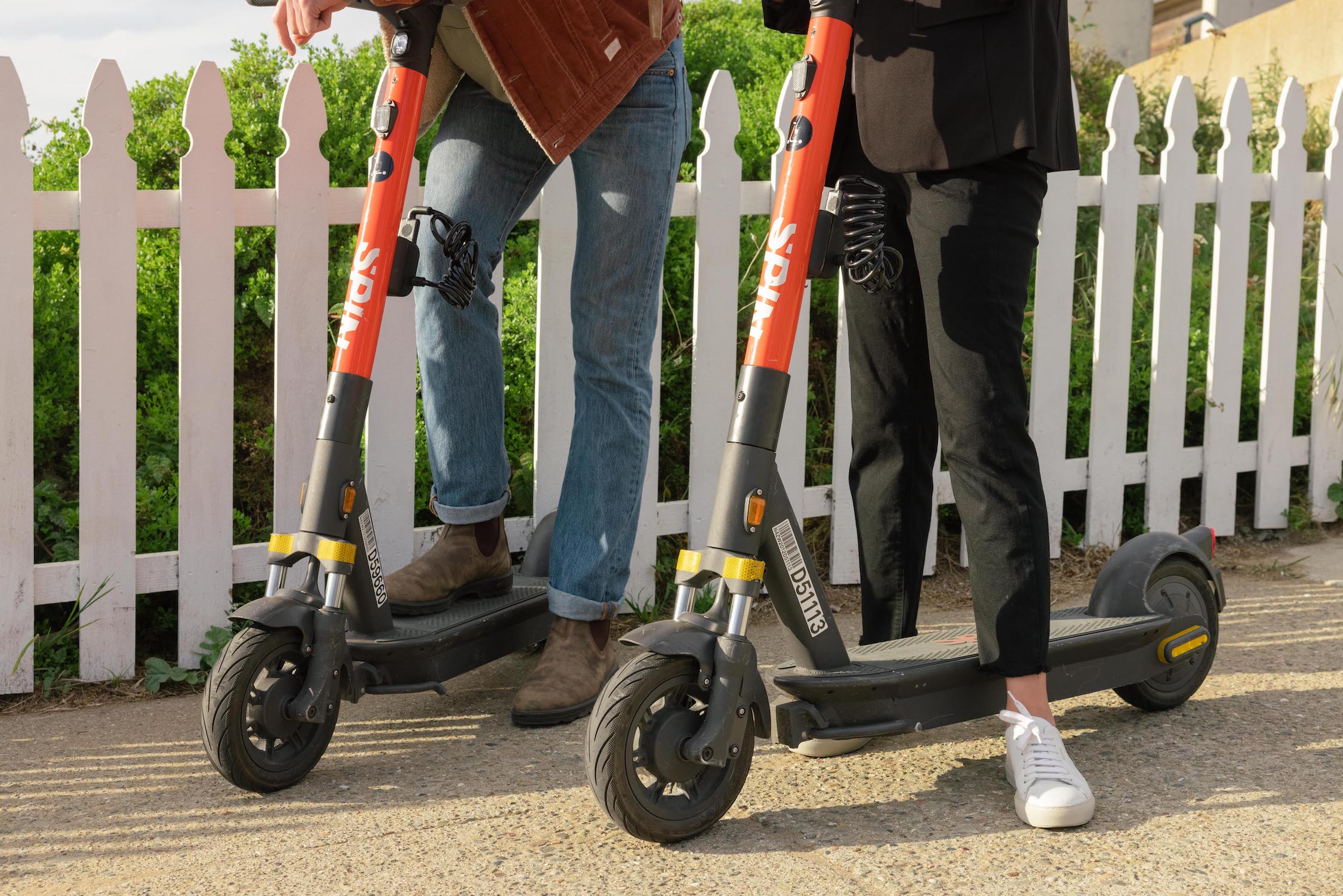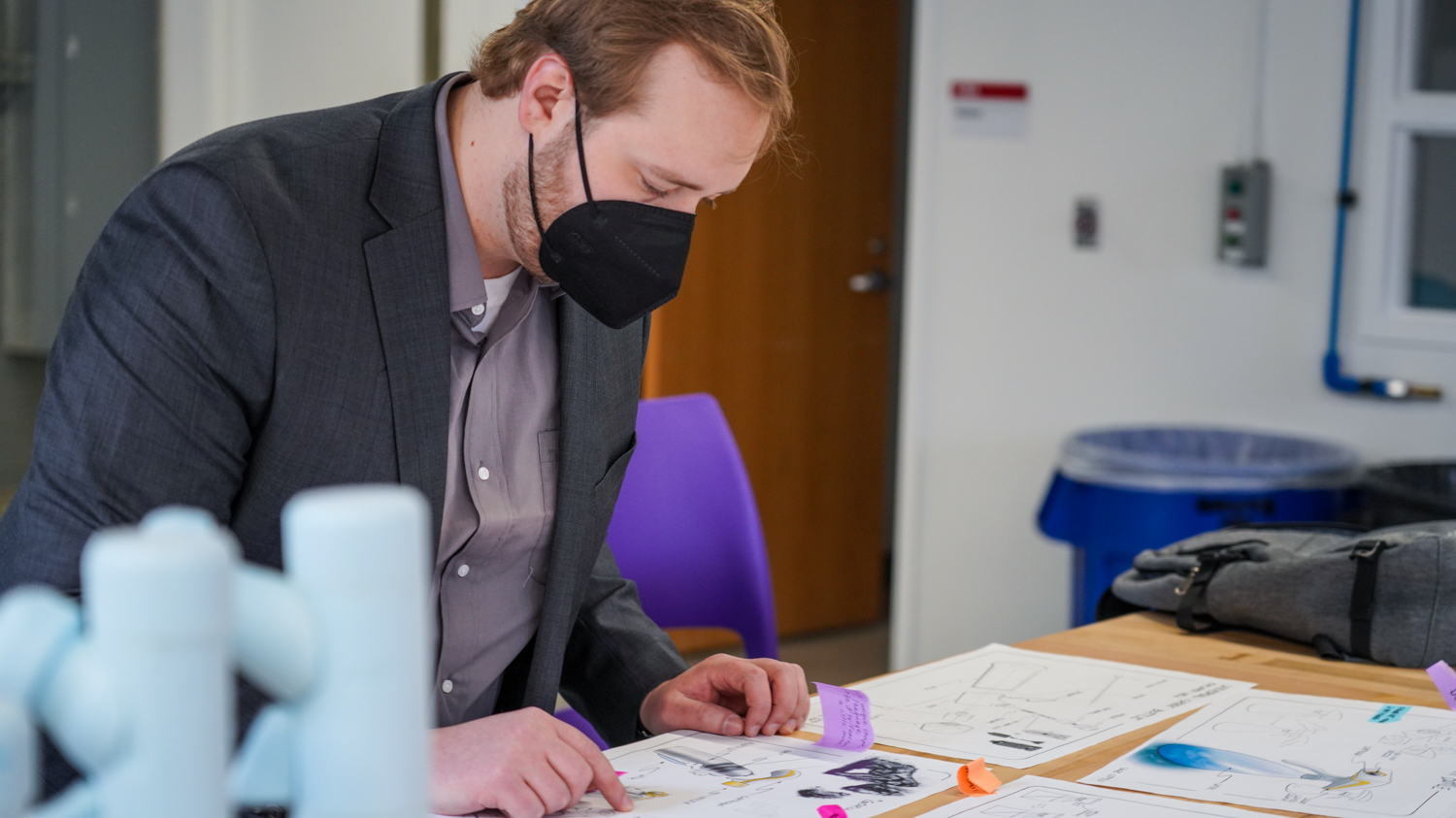NC State Helps Delta Air Lines Fly Safer
Researchers developed a tool to determine if upcoming weather would impact airport operations, including scheduled flights.

April 12, 2022 | Deborah Strange
You’re walking into an airport, ready to take a Delta Air Lines flight. Past security, you check the departure board — there’s a wintry mix forecast at your destination. But your flight is on time, and soon you’re on your way.
NC State research is helping make this possible, assisting Delta Air Lines in analyzing predictive weather models. “Bridging the gap between business and science requires collaboration across industry and academia,” said Peter Buczkowski, Delta Air Lines Technical Fellow.
Leah Burton, director of NC State’s Office of Partnerships, oversees the university’s collaborations with Delta, connecting the airline with NC State resources. “Delta has really served up real-world opportunities to translate research into something that will be used on a daily basis,” she said.
Data-Driven Weather Decision Support
Sandra Yuter, a distinguished professor of atmospheric sciences, led a team of scientific staff, undergraduates and graduate students in creating a tool that helps Delta determine if upcoming weather would impact airport operations, including scheduled flights. While weather predictions from different forecast models will occasionally agree, sometimes no individual model is reliably more correct than the others for a certain storm.
Yuter’s team mined data from previous model forecasts as well as actual weather observations at airports. They then entered the information into a constantly-updating database with a web-based interface. This gives Delta meteorologists both historical and real-time data they can use to decide if and when a particular airport will have weather impacts. Understanding the skill and uncertainty in a weather forecast is especially important for winter weather events, when an error in predicted temperature of just a few degrees can have consequences. For example, if precipitation is falling and air temperatures get near or below 32 degrees Fahrenheit, the plane has to be de-iced before takeoff. Although a prediction of 3 to 6 inches of snow over a few hours can sound like a small range, 3 inches can have vastly different effects on air traffic, runways, and tarmac operations.
“We’re providing Delta’s meteorologists with information to support their decision-making,” Yuter said. “They have to forecast for a lot of airports. The meteorologists want to be able to use their time in the most efficient way possible.”

The team worked throughout summer and fall 2019, delivering the initial end-to-end working version before the 2019 Thanksgiving holiday. Yuter was impressed with how the students took on the project with enthusiasm and creativity. Everyone learned new skills — data analysis, programming, cloud computing and more — while balancing course loads and exams.
“The students made it possible,” Yuter said. “The innovation, creativity and perseverance of our students is just fantastic, and this is a tremendous resource for the state and for the country. It’s a privilege to be able to work with these students.”
“The innovation, creativity and perseverance of our students is just fantastic, and this is a tremendous resource for the state and for the country.
As an undergraduate at NC State, Ronak Patel first worked on the project by developing the interface to access numerical weather model data from the National Oceanic and Atmospheric Administration. As he started recognizing models’ errors in temperature forecasts, he threw himself into learning everything possible about how models simulate the vast complexity in the atmosphere.
“At the beginning of the project, I wasn’t particularly interested in earth system modeling,” Patel said. “Over the past two years, I have learned an enormous amount about how earth system models work. I now have a very strong interest in improving these models and predicting the future state of the atmosphere in a way that has societal relevance, which is what I hope to do in grad school.”
Patel graduated from NC State with degrees in meteorology and statistics. He’s now working toward a Ph.D. in environmental science and engineering at the California Institute of Technology. He hopes to become an atmospheric researcher, either at a national research lab or in the private sector.
“No matter what I end up doing, I hope to keep pushing the frontiers of science and learning new things,” Patel said.
Matching Thought With Action
Working with Delta Air Lines gives NC State students and researchers the opportunity to truly Think and Do. Students get hands-on experience working within industries, and researchers see their work being applied outside the realm of academia. As part of NC State’s mission, the university’s research goes beyond journals and lectures and into the lives of everyday people.
“This is the definition of a real-world project,” Yuter said of the weather decision support system. “It’s a real solution, and Delta is using it.”
NC State’s collaborations with industry also strengthen economic development by creating a more skilled workforce and providing exceptional opportunities for students. Patel, who worked on Yuter’s weather project, delivered concise briefings about scientific findings to Delta officials — building his confidence in a professional setting.
“Our students gain deep insight into the needs of global companies,” Burton added. “This sets them apart when entering the job market and helps meet future industry demand.”
And for Delta Air Lines, working alongside faculty and students offers a unique advantage in innovative science and technology.
“We are committed to investing in solutions that reduce the stresses of travel and advance our customer experience,” said Buczkowski. “Partnering with NC State researchers helps us accomplish this.”
- Categories:


